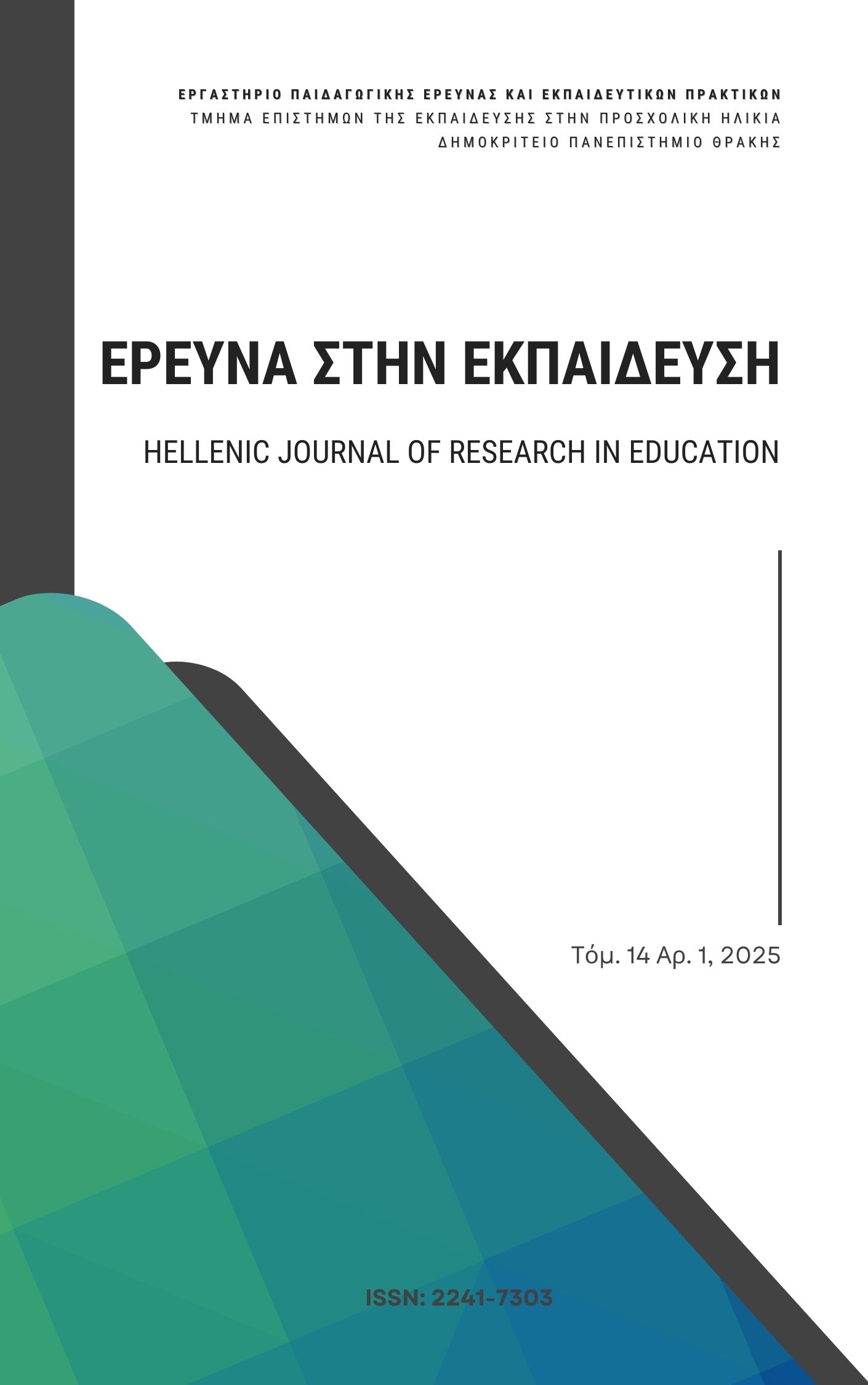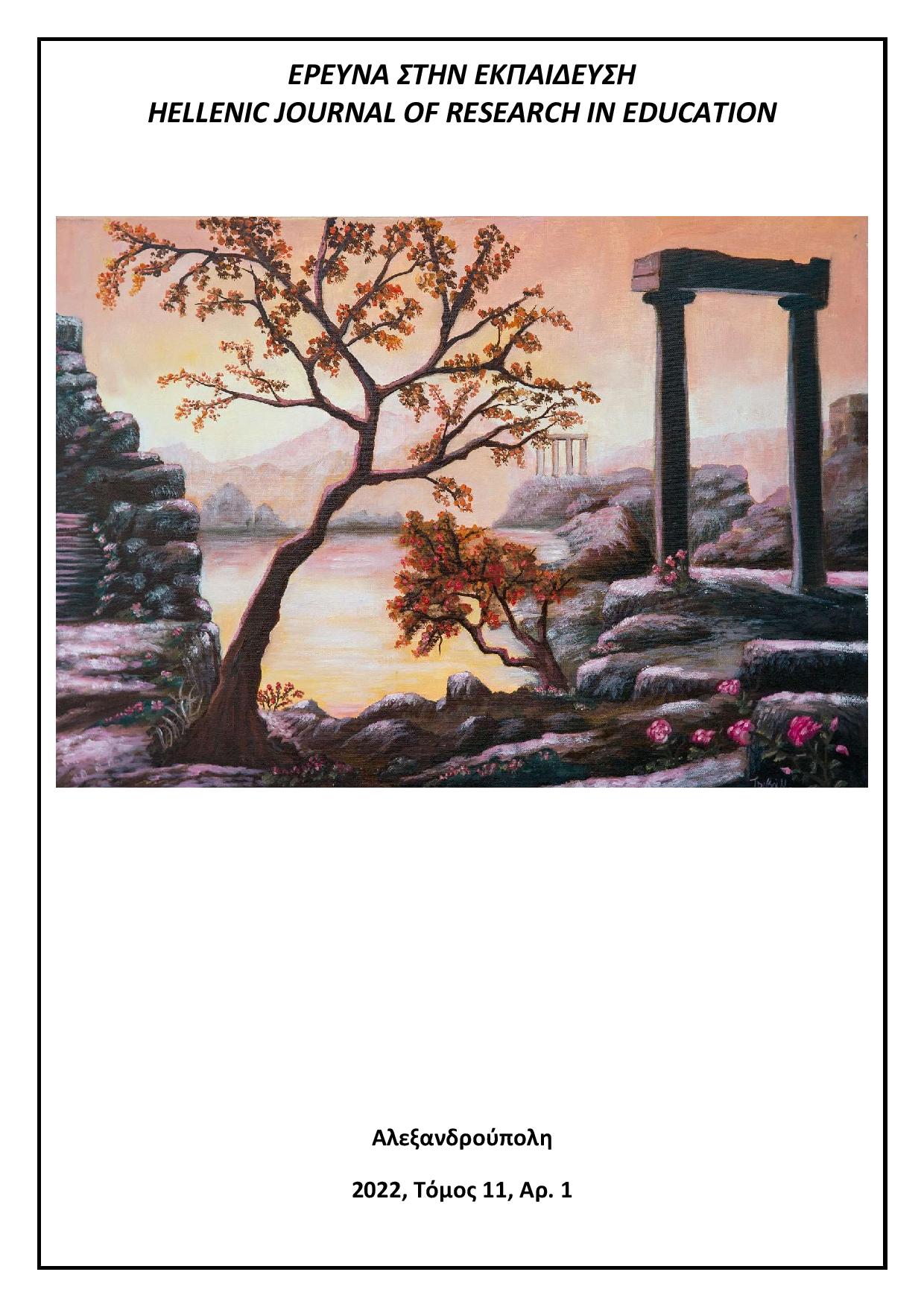Ψηφιακή κειμενική ανάλυση γλωσσικών πόρων με τη χρήση των Voyant Tools: η περίπτωση πρακτικών συνεδρίων της ΕΤΠΕ

Περίληψη
Η παρούσα μελέτη διερευνά τα ερευνητικά θέματα και ζητήματα που αποτυπώνονται στα Πρακτικά των συνεδρίων της Ελληνικής Επιστημονικής Ένωσης Τεχνολογιών Πληροφορίας και Επικοινωνιών στην Εκπαίδευση (ΕΤΠΕ) από το 1998 έως το 2019, αξιοποιώντας την υπολογιστική κειμενική ανάλυση μέσω του εργαλείου Voyant Tools. Στόχος είναι η αποτύπωση της θεματολογίας και της εξέλιξής της στον χρόνο, προκειμένου να κατανοηθούν οι επιστημονικοί και παιδαγωγικοί προσανατολισμοί στον χώρο των ΤΠΕ στην εκπαίδευση στην Ελλάδα. Το υλικό περιλάμβανε 2.610 εισηγήσεις, οι οποίες μετατράπηκαν σε κείμενα UTF-8 και αναλύθηκαν με χρήση λιστών εξαίρεσης λέξεων και ποσοτικών εργαλείων, όπως σύνοψη, συννεφόλεξα, όρους, συμφράσεις και τάσεις. Τα αποτελέσματα δείχνουν ότι οι συχνότερες λέξεις σχετίζονται με «χρήση», «διδασκαλία» και «εκπαίδευση», ενώ η αναφορά στις «ΤΠΕ» αυξάνεται σταδιακά μέχρι τα τελευταία χρόνια, αν και παρατηρείται ποσοτική μείωση, πιθανώς λόγω εναλλακτικής ορολογίας (π.χ. ψηφιακά εργαλεία). Η θεματολογία επικεντρώνεται σε εκπαιδευτικά λογισμικά, προγραμματισμό (ιδίως Scratch), διδακτικά σενάρια και γνωστικά αντικείμενα όπως γλώσσα, ιστορία, φυσικές επιστήμες και μαθηματικά. Ιδιαίτερη παρουσία έχουν οι θεματικές της επαυξημένης πραγματικότητας, της ρομποτικής, των εργαστηρίων STEM και των επιμορφώσεων εκπαιδευτικών. Διαπιστώνεται διαφοροποίηση ανάμεσα στα «γενικά» και τα «ειδικά» συνέδρια Διδακτικής της Πληροφορικής ως προς το λεξιλόγιο και τη θεματική εστίαση. Η ανάλυση των τάσεων δείχνει μετατόπιση προς περισσότερο μαθητοκεντρικές προσεγγίσεις, καθώς η «αξιοποίηση» των ΤΠΕ εμφανίζεται όλο και περισσότερο σε σχέση με τους μαθητές και τις μαθήτριες. Η μελέτη καταλήγει ότι τα Voyant Tools αποτελούν χρήσιμο μέσο διερευνητικής ανάλυσης και μπορούν να αξιοποιηθούν και στην εκπαιδευτική πράξη, ειδικά στο πλαίσιο των «Εργαστηρίων Δεξιοτήτων», για την καλλιέργεια ψηφιακών δεξιοτήτων και την εισαγωγή των μαθητών σε έννοιες ψηφιακού γραμματισμού και ψηφιακών ανθρωπιστικών επιστημών.
Λεπτομέρειες άρθρου
- Πώς να δημιουργήσετε Αναφορές
-
Μουράτογλου Ν., Μπίκου Ά.-Κ., & Μπίκος Κ. (2025). Ψηφιακή κειμενική ανάλυση γλωσσικών πόρων με τη χρήση των Voyant Tools: η περίπτωση πρακτικών συνεδρίων της ΕΤΠΕ. Έρευνα στην Εκπαίδευση, 14(1), 88–106. https://doi.org/10.12681/hjre.42392
- Τεύχος
- Τόμ. 14 Αρ. 1 (2025)
- Ενότητα
- Άρθρα

Αυτή η εργασία είναι αδειοδοτημένη υπό το CC Αναφορά Δημιουργού – Μη Εμπορική Χρήση – Παρόμοια Διανομή 4.0.
Τα πνευματικά δικαιώματα των άρθρων του περιοδικού ανήκουν στους συγγραφείς. Τα άρθρα διατίθενται με άδειες Creative Commons CC-BC-SA 4.0



